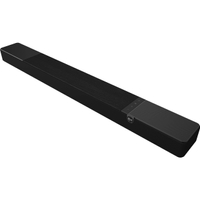I test speakers for a living, and this Klipsch Dolby Atmos soundbar blew me away
Amazing sound for half the price of competing models
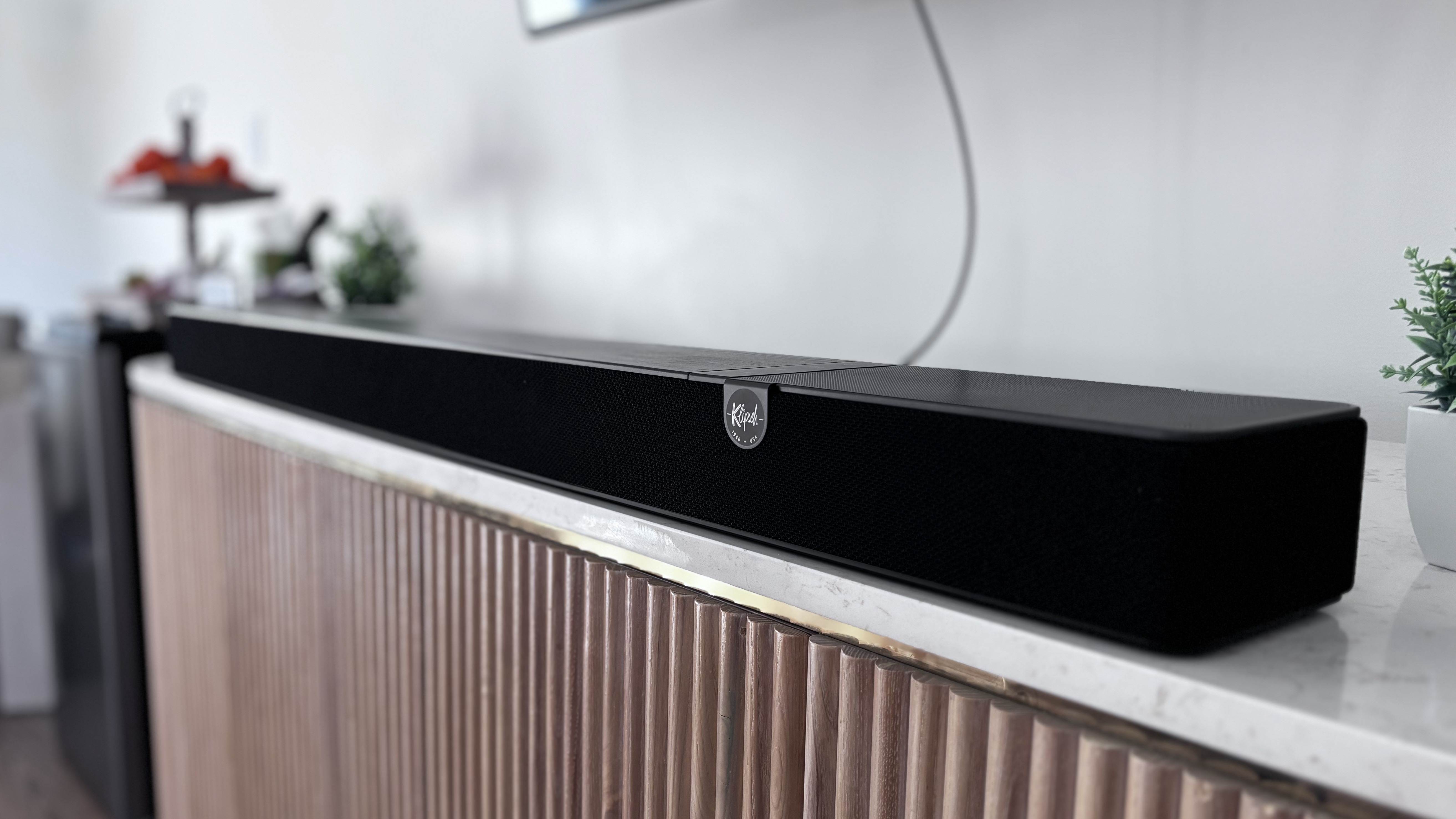
As Tom's Guide audio editor, I'm continually swapping the latest soundbars in and out of my TV audio setup for reviewing purposes. I've been lucky enough to try out several flagship models recommended in our best Dolby Atmos soundbars buying guide, but the Klipsch Flexus Core 200 blows many flagship models away for around half the price.
Flexus is a new series of Klipsch soundbars, subwoofers, and satellite speakers that use bespoke components made by Onkyo. The Flexus lineup, which made its debut at CES 2024, includes the Flexus Core 100 soundbar ($349) and Flexus 200 ($499), as well as the Sub 100 ($299) and Surr 100 speakers ($249). It's on sale through Klipsch dealers in the U.S., U.K., and Australia, as well as online retailers.
Klipsch Flexus: Immersive Dolby Atmos sound without breaking the bank
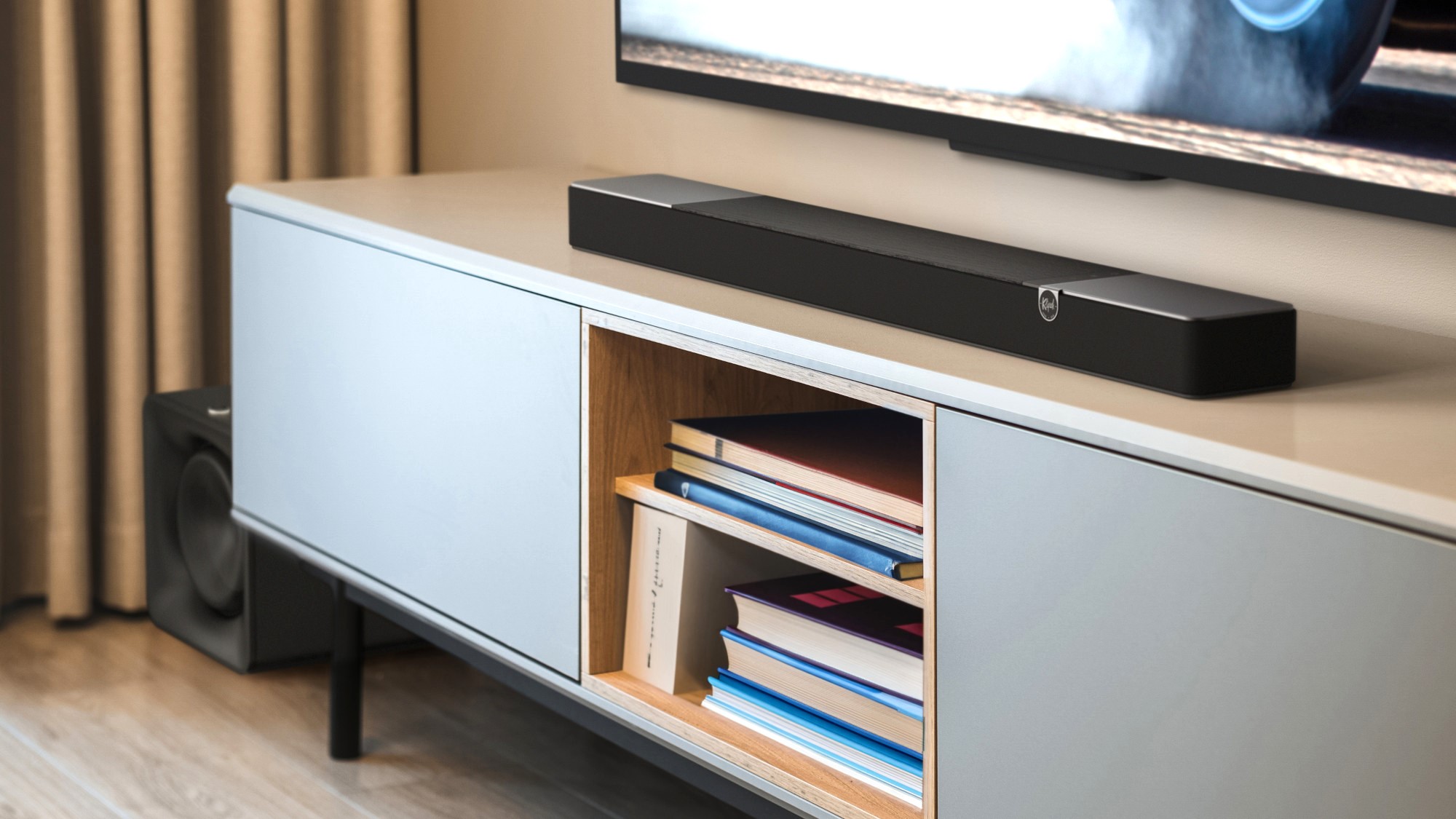
At $499 / £449 (approx. AU$755), the Klipsch Flexus Core 200 is the most attractive Dolby Atmos soundbar I've tried, as it comes at a price point that can introduce home theater lovers to the top-flight delights of Dolby Atmos for lower stakes than many might imagine. Other makes should take notice. For example, the Flexus Core 200 is more affordable than my go-to Denon Home Sound Bar 550 ($649 / £599 / AU$999), and marks an enticing entry-level for a soundbar with Dolby Atmos speakers. And as a total package including soundbar, sub and surrounds priced at $1,049, the Klipsch Flexus sounds superior to some flagship LG and Samsung TV speaker systems I've tried.
Klipsch Flexus Core 200: $499 @ Crutchfield
The 44-inch wide Klipsch Flexus Core 200 soundbar is perfectly proportioned for 55-inch TV setups or bigger and delivers 3.1.2-channel Dolby Atmos audio via four up-firing and four front-firing drivers. It also has a dedicated center channel tweeter with Klipsch's horn loading technology. Its total power output is rated at 185W, and you get very good bass performance for the price.
I've heard several more expensive Dolby Atmos soundbars including the Bose Smart Ultra Soundbar ($899), which offers AI-enriched tech to enhance the audio output to your room and listening position, but in my tests, the Klipsch sounds better.
The Flexus Core 200 shuns such intelligence and doesn't even have voice assistant or smart tech support for wider integration over Wi-Fi. But it feels better for it, and neatly demonstrates my belief that when it comes to maximizing the listening experience, the less tech there is to get in the way of the audio signal, the more natural and convincing a speaker will sound.
The Flexus Core 200 simply delivers good quality sound without allowing digital enhancements to get in the way.
Of course, there's a lot more to it than that. Klipsch and Onkyo have clearly gone to a lot of effort to ensure the speaker drivers and amplification inside the Core 200 deliver a balanced and engaging sound. In a world where AI is increasing its grip and influence on our everyday lives, it's refreshing that the partnership has chosen to focus on maximizing the audio experience with a true Dolby Atmos speaker system rather than relying on sophisticated AI tech and algorithms to manipulate the audio signal to output a sound it thinks you want to hear.
I'm not suggesting that there's no digital audio signal manipulation going on, but I'd say it leans more towards a back-to-basics approach; simply majoring on good quality sound without allowing digital enhancements to get in the way.
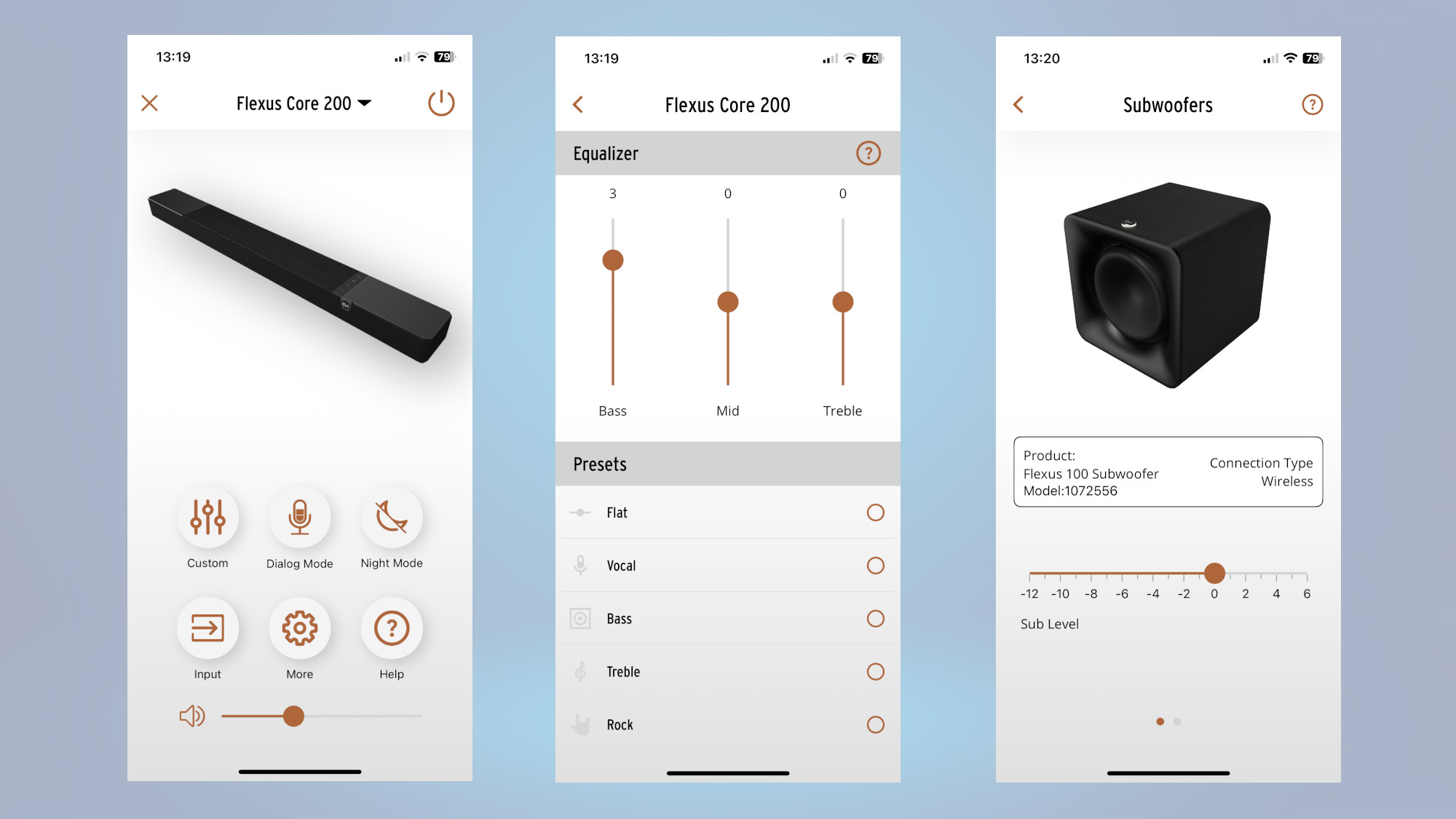
Connections on the Core 200 are pretty straightforward, too. They run to one HDMI eARC port, USB-C, digital optical, and an RCA subwoofer out on the back of the soundbar. It connects wirelessly using Bluetooth to send signals to the partnering Klipsch Flexus sub and surround speakers. Each component can be controlled via the Klipsch Connect Plus app to balance speaker levels and manage the system's configuration settings, and includes different sound modes like Night, Dialog, and Movie and Music modes. There's also an adjustable EQ and multiple Dialog levels, which worked brilliantly at bringing voices to the fore.
Installation is really straightforward. The rear surrounds and subwoofer were detected by the soundbar, and the crossover frequency is automatically selected by the system (there's no way to adjust it manually), so there's really nothing other to do than plug in the system and play. You get a handy remote control handset too, which acts a useful alternative to the Klipsch control app with all the functions duplicated.
Low price, big sonic rewards
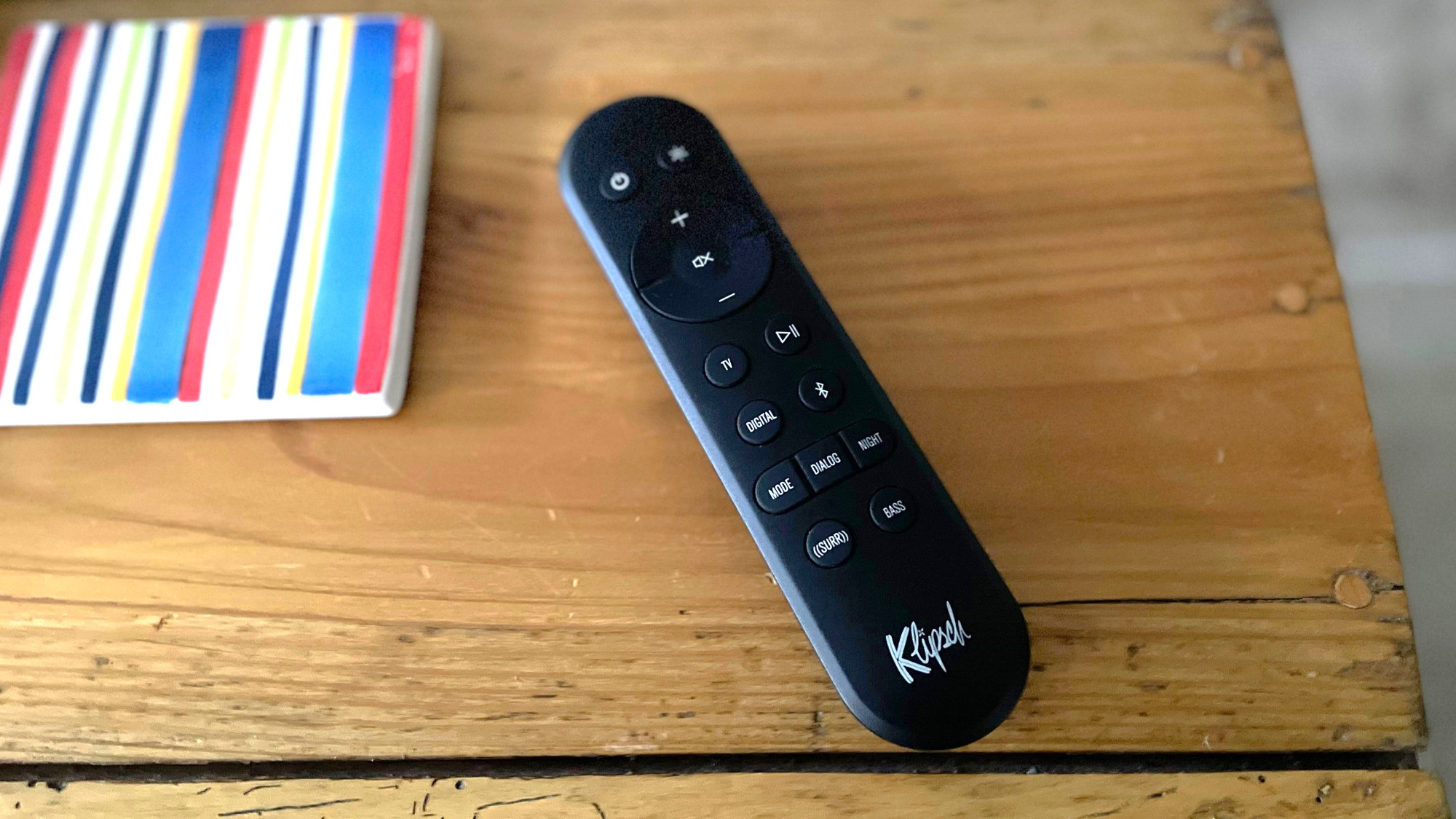
Although I haven't yet given a full Tom's Guide review to the Klipsch Flexus Core 200, either as a standalone soundbar or as full home theater setup, the full Klipsch Flexus package has been a consistently rewarding listen partnered with my 55-inch Samsung TV over the last few weeks. The soundbar is the standout component though, and I'd even go as far as to say that the Core 200 is one of the best soundbars I've heard when it comes to delivering a sense of Dolby Atmos scale with natural-sounding TV dialog straight from the box without the need for any adjustments.
The soundbar has a good amount of bass energy and the power to effect the brutal body blows dealt by Conor McGregor to Jake Gyllenhaal in 'Road House.'
I found the dialog setting to be one of the most effective I've encountered, lifting the clarity of voices without impacting other parts of the frequency range. Generally, I preferred the dialog set to its low or mid levels with the TV dramas and movies I watched, but if you're still finding certain content hard decipher the high setting will give voices the boost they need.
With Dolby Atmos movie sources there was more air and openness around what was on the screen. Sound seemed to the fill the space in front of me in a more convincing and immersive way. It appeared to fill the full height of the screen, rather than just projecting sounds forward from the bottom of where the soundbar is placed. Speaking of which, at just over 3 inches tall, it's shallow enough not to foul the bottom of the TV screen.
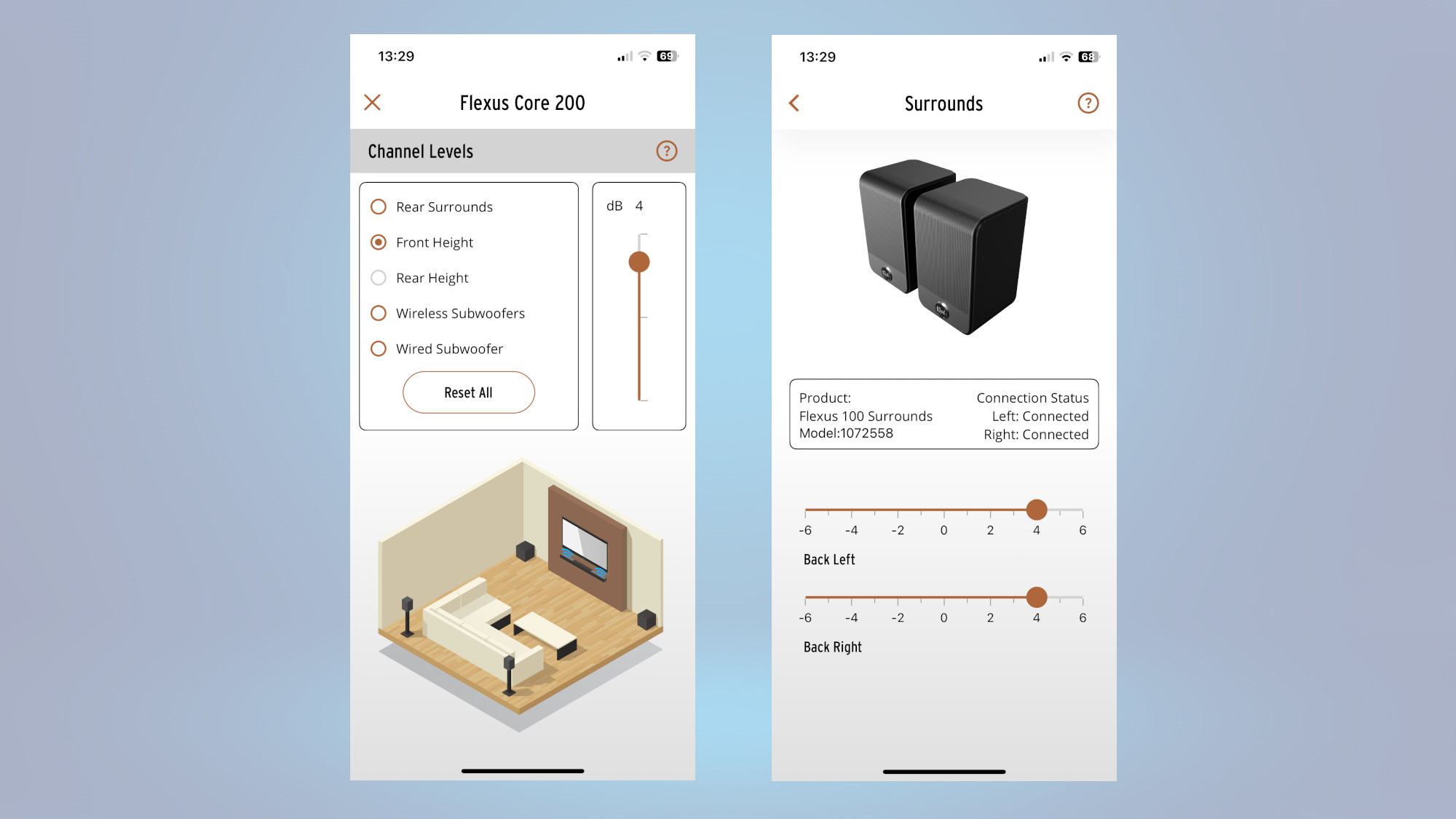
The soundbar has a good amount of bass energy and the power to effect the brutal body blows dealt by Conor McGregor to Jake Gyllenhaal in the Road House movie remake. Watching Top Gun: Maverick was similarly impressive, but to make the most of the awesome 1980s Harold Faltermeyer and Hans Zimmer soundtrack remake and those immersive aviation scenes, I fine-tuned the system's level settings to maximize the experience with the Sub 100 and Surr 100 speakers in place.
Things got pretty explosive with the sub in place, and there was plenty of gravitas to fill my medium-sized room. It's not as deep or as timely as some subs I've heard, but it's a great partner for the Core 200 at the price. I was less enamored by the surround speakers, which feel a bit budget alongside the other components, and they lack the mid to low-frequency response to carry sound effects convincingly as they're steered from the front speakers to the surrounds.
It's rare for me to find a soundbar enjoyable with music, but the Flexus Core 200 puts in a decent performance with a collection of demo tracks from my Tidal playlist. It supports Bluetooth streaming only, but hooking up my iPhone and playing a selection of tracks from Beyoncé to 1980s classics rewarded with a warm and engaging sound. Seemingly, there's no way to play music without the rear speakers also being enabled, and these were always on during my tests.
Despite some minor misgivings about the sound quality and features of the add-on components, the Flexus package is an attractive newcomer at the price. The Klipsch Flexus Core 200 is ultimately the star of the show though, and the best Dolby Atmos soundbar I've tried at the price.
Look out for my full Klipsch Flexus Core 200 soundbar review coming soon.
More from Tom's Guide
Sign up to get the BEST of Tom's Guide direct to your inbox.
Get instant access to breaking news, the hottest reviews, great deals and helpful tips.

After 2.5 years as Tom's Guide's audio editor, Lee has joined the passionate audio experts at audiograde.uk where he writes about luxury audio and Hi-Fi. As a former editor of the U.K.'s Hi-Fi Choice magazine, Lee is passionate about all kinds of audio tech and has been providing sound advice to enable consumers to make informed buying decisions since he joined Which? magazine as a product tester in the 1990s. Lee covers all things audio for Tom's Guide, including headphones, wireless speakers and soundbars and loves to connect and share the mindfulness benefits that listening to music in the very best quality can bring.
